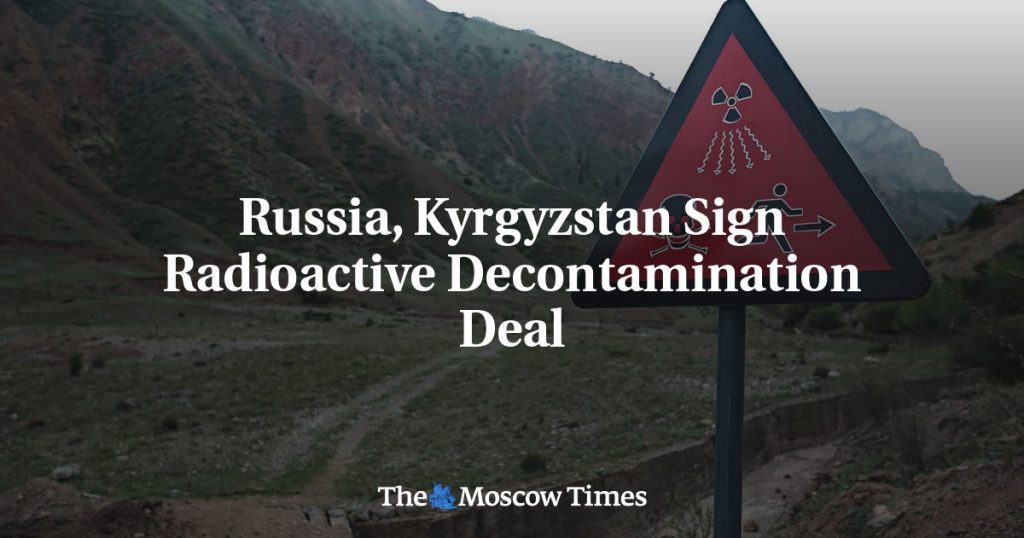Summarize this content to 2000 words in 6 paragraphs
Kyrgyzstan ratified an agreement with Russia on Wednesday for the mass decontamination of radioactive areas that pose a threat to the local population.
The mountainous central Asian country, a former Soviet republic, is still suffering the environmental consequences of uranium and other heavy metals mining during the Soviet era.
Ninety-two sites contain more than 300 million cubic meters of toxic and radioactive waste.
“The agreement between the Kyrgyz and Russian governments to cooperate in the rehabilitation of territories in Kyrgyzstan affected by uranium extraction and the mining industry has been ratified,” President Sadyr Japarov’s office said in a statement.
The agreement aims to “ensure the safety of the population living in areas where there is waste from former uranium mines.”
Without decontamination, natural disasters like landslides — which are frequent in the region — could send the waste spilling into rivers that traverse the entire Central Asian region, potentially contaminating millions.
Russian state-run nuclear giant Rosatom is also running nuclear waste decontamination efforts in neighboring Central Asia countries Kazakhstan, Tajikistan and Uzbekistan.
Kyrgyzstan held a separate ceremony on Wednesday marking the removal of the final 55 tons of Samin, a toxic rocket fuel component, from a village near the capital Bishkek — another chemical waste hangover from the Soviet Union.
“The disposal of the rocket fuel component ‘Samin’ will significantly reduce the risk of an environmental emergency and enhance the safety of the local population,” Deputy Defense Minister Emil Osmonov said.
The fuel will be transported to Germany to be destroyed next month, the Organization for Security and Cooperation in Europe, which supported the work, said in a statement.
The EU and World Bank have also allocated funds to help restoration efforts.


